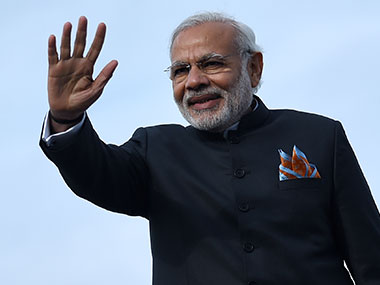British writer and philosopher Aldous Huxley, who died in 1963, once said “there are things known and there are things unknown, and in between are the doors of perception.” For pattern-seeking human minds, however, perception IS reality.
If perception occupies the area between what we know and don’t know and form our worldview based on that understanding, then it is plausible to suggest that the one who tweaks our perception has a grip over our reality.
It follows, therefore, that for a public figure like a politician, managing perception is a critical task because a failure on that front severely undermines his successes on the other. That, in a nutshell, sums up the first two years of Narendra Modi as the Prime Minister.
Avoidable controversies at regular intervals (some for which he must take responsibility, while some were simply malicious propaganda) and a pathetic communication failure have served to skew the perception such that his government’s not-too-insignificant list of achievements so far has gone totally under the radar.
While I had highlighted the removal of bureaucratic deadwood and reduction in cronyism in my earlier piece , significant strides have been made in the fields of recovering black money; corporate defaulters like Vijay Mallya have been targeted with the passing of the Bankruptcy Bill; a revised tax treaty has been signed with Mauritius to curb round tripping; a similar treaty is reportedly underway with Singapore; Direct Benefit Transfers have removed duplicate beneficiaries; FDI is at an all-time high and yet the top trend on Twitter over the last two days was #PoMoneModi (go back Modi), a reference to his recent ostensible comparison of Kerala with Somalia.
Unearthing of black money
In a statement on Tuesday, the finance ministry said the government has unearthed evasion of around Rs 50,000 crore of indirect taxes and undisclosed income of Rs 21,000 crore through a series of measures in the past two years. The value of goods seized on account of smuggling activities has increased to Rs 3,963 crore in the last two years, an increase of 32 per cent over the same period, the statement said.
To curb black money, the government has made amendments to the Prevention of Money Laundering Act, 2012 , as well as Foreign Exchange Management Act (FEMA), 1999, it said.
Corporate defaulters to face Bankruptcy Bill heat
With the passing of the Insolvency and Bankruptcy Code 2016 in the Rajya Sabha on Wednesday, the Modi government has brought in a vital reform that will make it much easier to do business in India. The new bankruptcy law is expected to ensure time-bound settlement of insolvency, enable faster turnaround of businesses and create a database of serial defaulters. It will make it easier for lenders to recover outstanding debts by setting a deadline of 180 days for defaulters to pay or face liquidation. Of course, a lot will depend on implementation but it is a much-needed step.
Treaty with Mauritius
India has signed a revised tax treaty with Mauritius that is expected to curb black money generation by minimising round tripping of funds by those who want to avoid paying domestic taxes. Finance minister Arun Jaitley told the Parliament on Wednesday that it was the culmination of a decade-long effort. This closes a loophole that has long allowed domestic and foreign investors to escape taxes on short-term investments by routing them through the tiny island nation of Mauritius. And the Economic Times points out that New Delhi is now looking to start talks with Singapore to tweak the double taxation avoidance agreement (DTAA) with the nation to plug any similar leakages.
Direct benefit transfers
A report in Livemint details how DBT scheme for flagship programmes to transfer funds directly to bank accounts of beneficiaries has helped the government in weeding out duplicate beneficiaries. In 2015-16, the government distributed around Rs.61,000 crore to more than 30 crore beneficiaries using the DBT scheme. Quoting a government statement, the report says over 1.6 crore bogus ration cards have been deleted, resulting in savings of about Rs.10,000 crore. Similarly, 3.5 crore duplicate beneficiaries were weeded out in the PAHAL scheme dealing with cooking gas subsidy that saved around Rs.14,000 crore. In the MGNREGS, a saving of Rs.3,000 crore or roughly 10% of the total allocation is estimated to be saved in 2015-16.
These are important reforms and subject to time-bound implementation, have the potential to clean up the system and release the economy’s animal spirits.


)




)
)
)
)
)
)
)
)